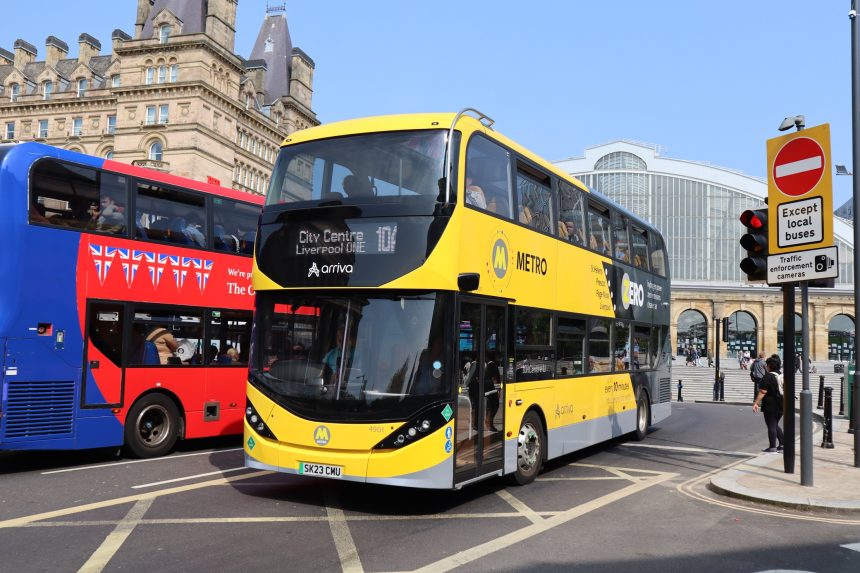Trial and error is a long-established means of achieving successful outcomes. Thanks to the wonders of modern technology, bus operators and local authorities can quickly identify the “errors” offline rather than in the real world so that positive adaptations can meet with success.
Podaris is an example of a business which is pioneering this approach. Although transport planning software is not new, its niche is simplifying and speeding up the process.
Its web-based platform Podaris: Insight allows for high-level strategic planning and analysis of transport networks.
The tool uses mainly public domain and client-supplied data such as the UK census and travel-to-work sets.
Allowing for remote collaboration between various stakeholders, the service has proved particularly useful for local authorities in preparing Bus Service Improvement Plans and when considering franchising.
Users can simply “drag in” their own transport networks, which are then overlaid on a map. Corridor analysis, fare strategy modelling and catchment analysis can be easily processed. What areas can be reached from a certain point in a given time? How does changing the route or service level affect ridership? What percentage of the population can reach the hospital within 30 minutes? These are some of the questions that Insight can answer.
Public Transport Accessibility Level, which is an important measure of the accessibility of public transport from a given location, can also be generated by the platform.
The speed and simplicity of Podaris: Insight was in evidence as Devon Barrett, Podaris Co-founder and Chief Technical Officer, took routeone through a guided tour recently.
It’s the ability to test more options in more detail in the earlier stages that allows more beneficial schemes to come to light and make it down the pipeline – Devon Barrett
Using real data from around your correspondent’s home city, we were able to see within minutes the effects of making network changes. The local knowledge of the area helped us to see the power of the solution’s tools.
“That bus that has always taken for ever to go around my estate — can we take off the loop and shorten the journey it a bit?” I ask Devon. Straight away, the number of people within 10 minutes’ walk of the entire service is reduced by thousands. What would be the cost of doubling service frequency to the city centre? How many people would be benefited by the insertion of a new bus stop? The responses were quickly supplied with the push of a few buttons.
Flexibility and speed
Devon outlines how he believes Podaris: Insight stands out. He says: “Historically, there have been two types of tools in this space.
“We had quite large and clunky travel-demand models which are updated about once every 10 years and are slow. There were tools at the other end of the spectrum that were a bit more simplistic, but they were easier to use and perhaps faster to run.
“What Podaris is trying to do is be a tool within that gap — still maybe as easy to use as the simplistic spreadsheet models but giving roughly as rich insights as the travel demand models in much less time.
“It’s the ability to test more options in more detail in the earlier stages that allows more beneficial schemes to come to light and make it down the pipeline.”

The flexible tools of Insight are designed to work well in a post-pandemic scenario where much in the industry is changing.
“The travel-demand models that I mentioned before are obviously really sophisticated, but they rely on making a lot of really detailed assumptions that are in flux,” says Devon.
“The way travel demand is changing, such as shift patterns, and the speed of change to public transport networks post-pandemic has been a lot faster.”
The move towards franchising looks set to mean Podaris is more in demand. The business has already worked with Liverpool City Region, and Cambridgeshire and Peterborough Combined Authority in their assessments of franchising options.
“It’s a very exciting time for public transport generally in the UK,” says Devon, who was last month named Young Transport Planner of the Year by the Transport Planning Society.
“We’re seeing a lot more considering using Podaris to understand what [franchising] might mean as there are still a lot of uncertainties in how you go about planning for it.”
The way travel demand is changing, such as shift patterns, and the speed of change to public transport networks post-pandemic has been a lot faster – Devon Barrett
The flexibility of the software enabled Podaris to react quickly when the Department for Transport this year required local transport authorities in England to submit bus connectivity assessments to support Bus Service Operators Grant Plus funding applications, explains Devon.
“It required all local transport authorities to appraise the connectivity of their bus networks. For example, what percentage of the population have access to travelling to a hospital by a bus within 30 minutes,” he says.
“We built a toolkit in Podaris: Insight within one month of that guidance being published. It ended up being used by about one in five local transport authorities across England. A lot of them didn’t have the tools or the methodology to be able to do it in that timeframe.”
With local transport authorities likely to be tasked with more responsibility for bus services in future, metrics such as these which reveal the connectivity of the public transport network are set to increase in importance — good news for businesses like Podaris.
Buses to remain key
Podaris had its roots in 2013 as a business providing support to the development of “podcars” – also known as “personal rapid transit”, which are lightweight, autonomous vehicles once seen as being the future of transport.
This exemplifies how public transport may change considerably in future, but Devon believes buses will still have a part to play.
“It’s an exciting time, especially as lots of people look towards autonomy as a solution,” he says.
“From my perspective, we work across many different types of geographies, from urban areas to really rural areas and there is no one-size-fits-all solution. What we’re seeing is things like last-mile improvements, whether they’re autonomous vehicles, e-bikes or e-scooters, are only ever going to be one bit of the puzzle.
“Buses and mass-transit solutions are so key and so I think, even if you have more efficient services that are cheaper to operate, you still need a very diverse transport network.”
From those small beginnings, Devon claims Podaris has “punched above its weight”, having supported projects as diverse as Google’s headquarters expansion in San Francisco and light rail studies in New Zealand, despite employing fewer than 20 people.
Devon says: “There’s definitely room for growth, but a large part of being a UK-based company is we’re really aligned with trying to provide tools to make the lives of transport planners easier.
“A lot of the tools for transport planning are quite antiquated and there’s scope to make those more efficient, which can hopefully lead to better and more integrated solutions.”

























